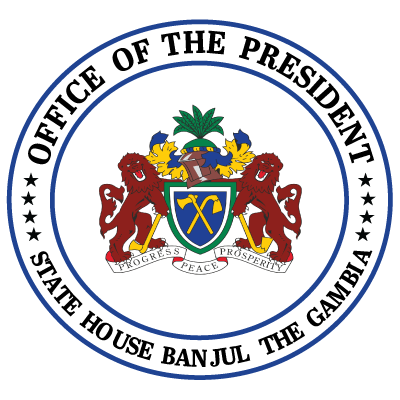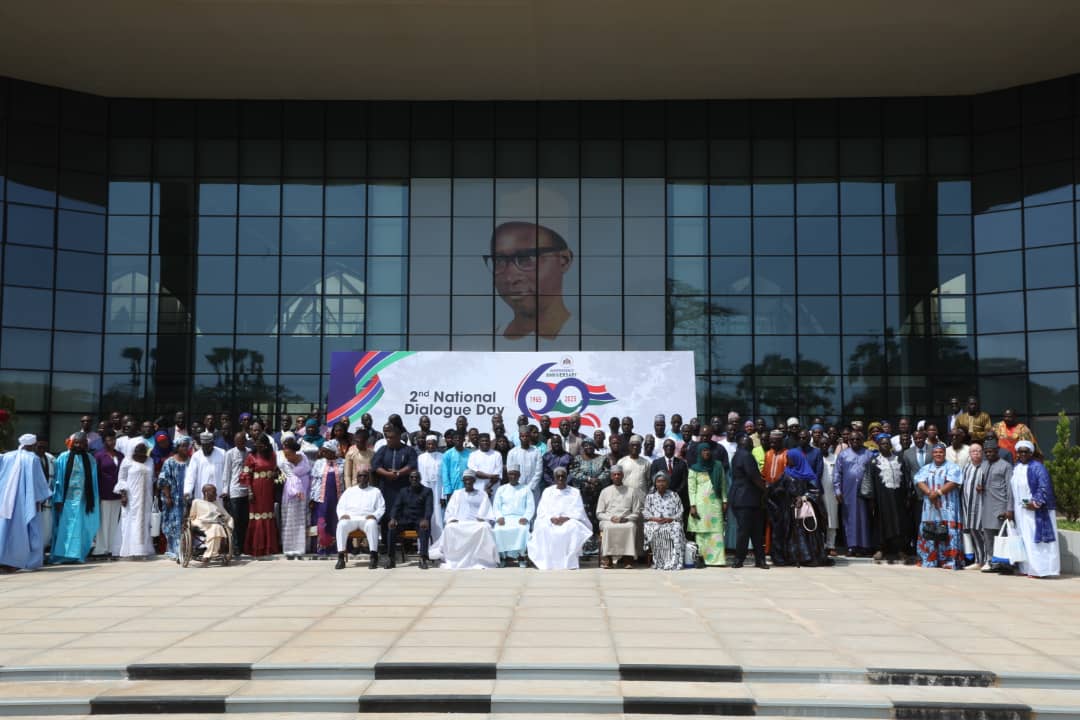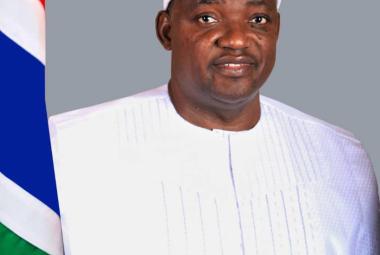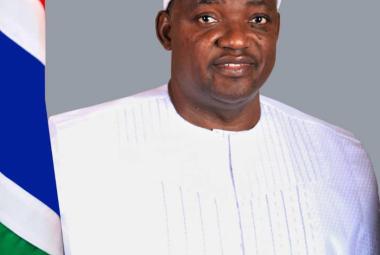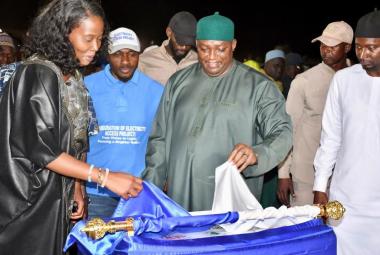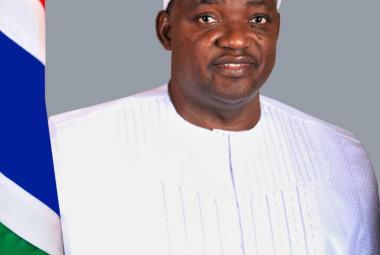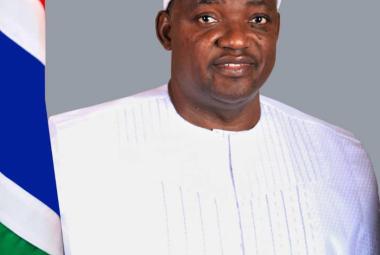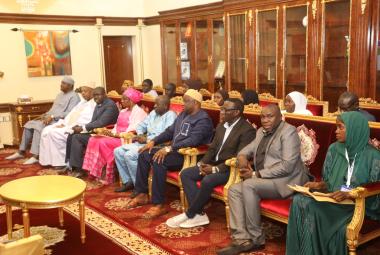VENUE: STATE HOUSE
Your Excellency, the Vice President, Your Excellencies, Former Vice Presidents Present, Honourable Speaker of the National Assembly, My Lord, the Chief Justice, Honourable Members of Cabinet and the National Assembly, Lord Mayors of Banjul and Kanifing Municipality, Regional Governors, Members of the Diplomatic and Consular Corps, Representatives of International Organisations and Development Partners, Political Party Leaders, Government Officials and Service Chiefs, Community and Religious Leaders, Distinguished Guests, Ladies, Gentlemen, and Students,
As your host, I cordially welcome you all to the second National Dialogue Forum, organised as part of the Diamond Jubilee Anniversary celebration of The Gambia’s attainment of Political Independence in 1965.
Your presence signals your commitment to the welfare of the nation and your belief in dialogue. Because of the stakes we jointly have in the country, our attendance is certainly a patriotic duty.
The theme for this year, Marching in Solidarity for Self-Reliance and National Development, is not only excitingly relevant, but also challenges us, as patriots, to reflect on the future of the nation more constructively.
The challenge is for us to search for solutions on what to do urgently to really make The Gambia a dreamland for all Gambians. The solution seems to lie in marching together, in solidarity, using our human and material resources for speedy national development.
From this perspective, marching means working collectively, through our formal and informal structures. In other words, we must work collectively through our governance structures, institutions, communities, families, social groupings, and through every individual.
As marching physically involves movement or moving forward, so does it imply progress. In our political situation, it means advancement and development, while avoiding a repetition of the bitter experience of the past.
If we are to march in solidarity, we must cooperate as a nation, a people, a community, and as units of the existing legitimate structures, with the national interst in view. To succeed in this endeavour, we must plan together, execute our plans collectively, and protect the results of our work and accomplishments.
With this in mind, we must prioritise the people’s interests, aspirations, concerns, and welfare in all areas of development. These are the type of attitudes, values, principles, and basic elements that strengthen self-reliance.
I hold the view that self-reliance denotes looking inward as a nation, planning, prioritising, and taking appropriate action, based on our resources, potential, and abilities.
To be self-reliant, we have to take our destiny into our own hands, respect our sovereignty, and strive for self-sufficiency in our major areas of need. In addition, we must have the capacity, the capability, the freedom, and the choice to make decisions and act on them with timeliness.
The result of all these should hinge on constructive work, building and developing relevant structures, securing and sustaining life and property, as well as creating every possible means of livelihood for the people.
We must, therefore, develop the capability to think innovatively for appropriate action and maintain a high degree of resilience, especially in times of difficulty.
The place that dialogue has in the equation is evident. Dialogue is a democratic principle and a communication value. It is a principle that promotes involvement, participation, consultation, discussion, compromise, and agreement.
Dialogue reminds us that democracy is not about the dictatorship of the majority over the minority. It is about the majority working with or on behalf of the minority in the interest of all. This is what my government is promoting.
The Gambia is known for its rich cultural diversity. We have a common heritage, respectable values, national traditions, and a unique identity as Gambian Africans. These characteristics inform and govern social life, which is at the core of our political relevance. Through these common characteristics, we can always sort out our disagreements and remain united.
The three arms of Government demonstrate how to cooperate and head towards the same destiny. The Government and its institutions, on one hand, and the private sector and civil society, on the other, need to have a similar collaborative relationship.
Like these formal structures, our families and communities should cooperate, collaborate, hold consultations, and dialogue between and across themselves. Among us are vulnerable women, youths, and disadvantaged groups who deserve protection, support, and empowerment for our collective good.
Ladies and Gentlemen,
This is an interdependent world, so self-reliance is not about isolating ourselves. We must be mindful of global trends and earn ourselves a respectable place within the international community. The lesson is that, as Gambian nationals, developing The Gambia can come about only through development initiatives, the task and onus of which rest on all of us.
In discharging this responsibility, let us morally hold ourselves accountable to the people and be guided by the Gambian spirit of being dutiful and supportive.
Collectively, we are the custodians of the Land today and our actions, achievements and failures will go down in history for judgement sooner or later.
In remembering this, no differences should divide us; instead, they should strengthen us as a people of varied backgrounds, skills, knowledge, and perspectives.
We are blessed with shared honourable values, such as hard work, honesty, spiritual orientation, religious tolerance, and love for family, community, and nation. If these cannot bond or unite us, nothing else can.
The focus of national development is obvious. In brief, we have to secure our sovereignty, diversify the economy, utilise our resources wisely to live comfortably, and co-exist as law-abiding citizens.
Ladies and Gentlemen,
In 2016, under my leadership, we proved that we could work together in the interest of the nation. The National People’s Party, under my leadership, has again shown that different political parties can work together in the same government for national development in the interest of the people.
This shows that there are no differences, beliefs, or other features that can stop us from working in solidarity for national development.
In this spirit, I invite all political parties and Gambians to join us to develop our nation. Working together, we can ensure peace, security, and stability, which is an obvious way of avoiding unrest, bloodshed, or instability in our dear motherland.
We operate through national plans, policies, projects, programmes, procedures, institutions, and laws. All of these are formulated by people and are liable to scrutiny and amendments. This makes it possible for every citizen to contribute to such instruments by providing useful advice or ideas.
As President, my desire is to work with all Gambians, be they at home or in the diaspora. Likewise, as a party leader and citizen, I extend a hand of cooperation to everyone.
Distinguished ladies and gentlemen, the organising committee of this Forum, coordinated by the Director of Press and Public Relations in my Office, deserves commendation for the magnificence of the occasion.
Like the theme, the subthemes are very well thought through, and I hope the various groups will do justice to them.
My proposal is that we make good use of the reports generated from this annual forum by publishing them and acting on the resolutions collectively.
I thank you all for your attendance and pray that we have very fruitful discussions.
May God bless our efforts.
